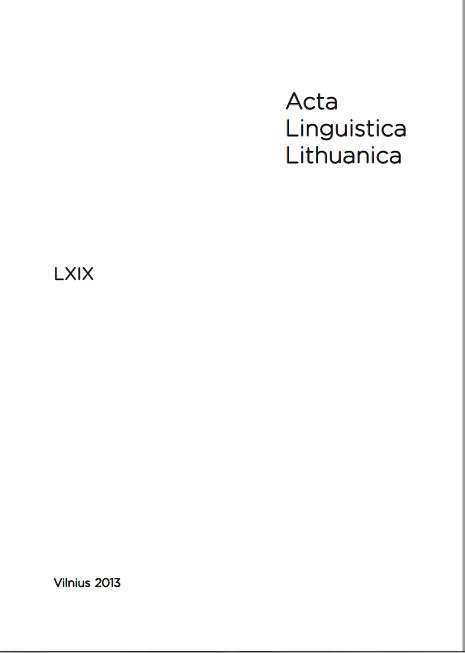Semantinė pragmatinė tikrinių žodžių teorija
A Semantic-Pragmatic Theory of Proper Names
Author(s): Willy Van LangendonckSubject(s): Theoretical Linguistics, Applied Linguistics, Semantics, Pragmatics, Psycholinguistics
Published by: Lietuvių Kalbos Institutas
Keywords: unique denotation; reference; name lemma; presupposition; definiteness; basic level meaning; established linguistic convention; grammar; translation;
Summary/Abstract: This article aims at an extended semantic-pragmatic analysis of proper names in reaction to the reductionist approach of Richard Coates’ Pragmatic Theory of Properhood (ALL 2012). It is argued that names have at least two kinds of presupposition: grammatical features (especially definiteness) and a categorical (basic level) presupposition, which makes subcategorization of names possible. All this is connected to the claim that names do not only refer uniquely in language use (a frequent function, though not the only one) but also denote uniquely at the level of established linguistic convention. To render this acceptable, it is essential to distinguish between name and name lemma. This distinction is also relevant to the realm of possible connotations and the issue of name translation. Grammatical, philosophical, psycho- and neurolinguistic evidence is adduced.
Journal: Acta Linguistica Lithuanica
- Issue Year: 2013
- Issue No: 69
- Page Range: 99-129
- Page Count: 31
- Language: English

